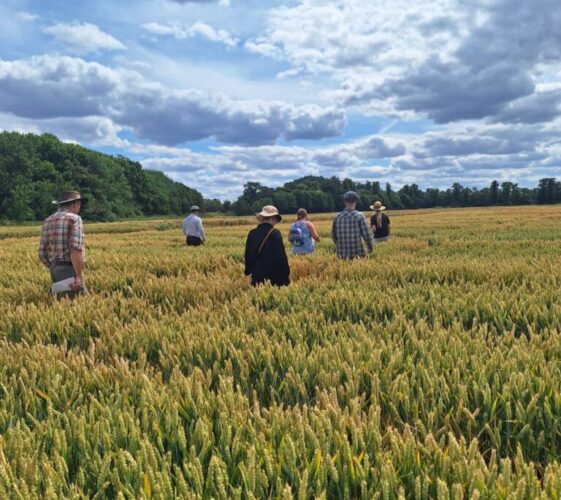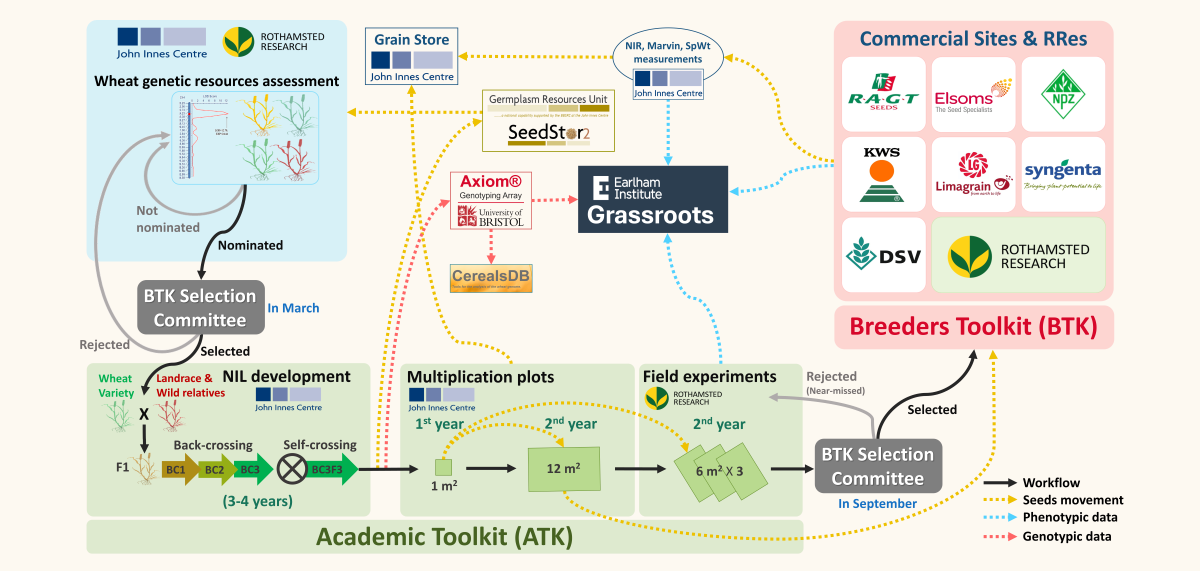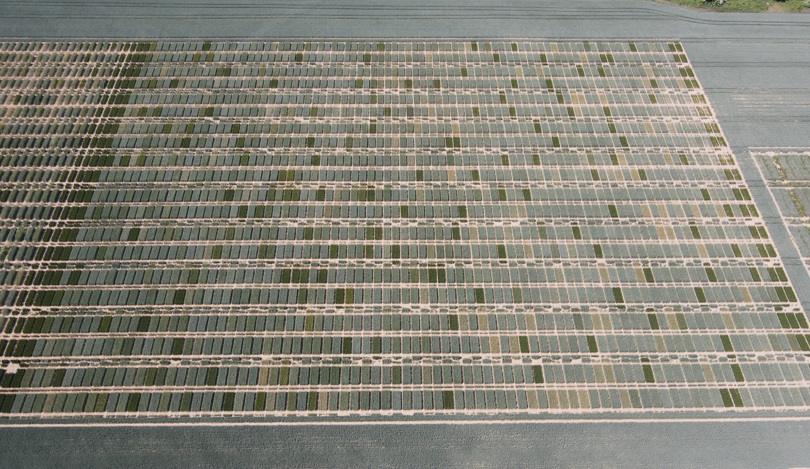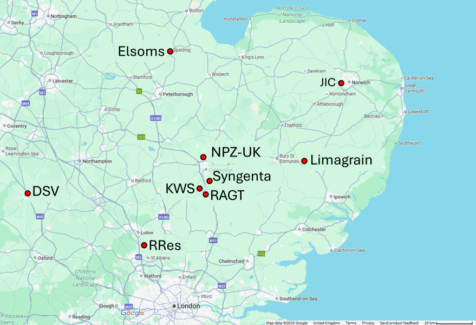
Breeder Toolkit Delivery pipeline to industry
A key aim of the Delivering Sustainable Wheat research programme is to uncover valuable, innovative genetics that can enrich UK wheat breeding initiatives. This involves introducing novel genes from wild relatives and exploring agronomically beneficial traits within wheat landrace collections.
Delivery to industry is facilitated through the Breeder Toolkit (BTK) pipeline.

This process starts from Delivering Sustainable Wheat research centres, where wheat genetic resources are investigated to identify QTLs and genes underlying significant agronomic traits. Genetic materials demonstrating potential are nominated to a BTK Selection Committee, comprising researchers and commercial breeders, convening annually in March to select materials to carry forward in the Academic Toolkit (ATK), the panel from which the BTK is selected.
Chosen lines are then crossed with wheat varieties to produce Near-Isogenic Lines (NILs) via three back-crosses followed by three self-crosses, culminating in the BC3F3 generation. At this juncture, the resultant material is genotyped using Axiom technology, and seed samples enter the Germplasm Resources Unit (GRU), receiving an ATK Store Code. Lines undergo multiplication at John Innes Centre for two years, concurrent with NILs being grown at Rothamsted Research for one year to assess their performance.
Results from the Rothamsted Research experiment are discussed in September by the BTK Selection Committee to decide which lines progress to the subsequent year’s Breeders Toolkit Trials. These selected lines are allocated BTK Store Codes at GRU before being dispensed from the John Innes Centre Grain Store to breeders for one-year cultivation at their commercial sites. The chosen BTK lines are also grown at the Rothamsted Research for further evaluation.
Breeders forward grain samples to John Innes Centre for further analyses, including protein, thousand grain weight, and specific weight measurements. All genotypic and phenotypic data accumulated from the various ATK and BTK stages are deposited in the Grassroots database (Earlham Institute) and made accessible to the public.
This continuous process, with Toolkit trials grown each year since 2017, has been proven to be an efficient delivery pipeline bridging research and industry.

Experimental Toolkit plots at Rothamsted Research (2022)

Breeder Toolkit Trial Sites
The BTK Selection Committee includes representation from our academic partners and industry stakeholders.